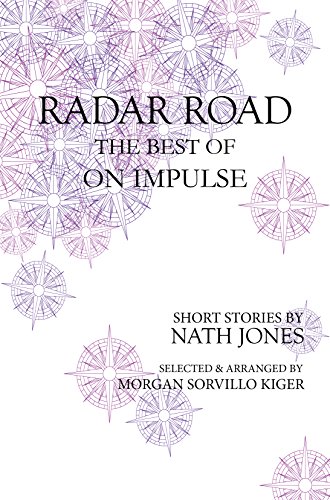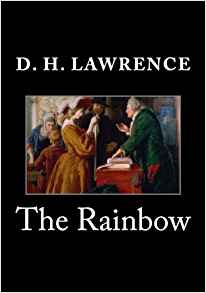Radar Road: The Best of on Impulse came in third in the fiction category of the 2017 IndieReader Discovery Awards, where undiscovered talent meets people with the power to make a difference.
Following find an interview with author Nath Jones.
Radar Road: the Best of On Impulse was published September 17, 2016.
What’s the book’s first line?
“Here I am at the end of a wonderful life.”
What’s the book about? Give us the “pitch”.
In a series that begins with the question: what is a book? This is a book. My editor, Morgan Sorvillo Kiger, takes what the On Impulse series offers and gives us a portion to desire.
What inspired you to write the book? A particular person? An event?
The series began as a joke on Facebook. After Kindle came out in 2007, I was sort of making fun of all the people who were writing ebooks. Jane Friedman said, “Why don’t you try it?” I scoffed and said I might toss something in the ring and call it, “Nath’s Kindle Bundle Number One” just to see the technical side of reflowable content. Another friend freaked out and said I was not allowed to name a book any such thing. (Have some respect!) So I shaped right up and wrote The War Is Language, which is the first title in the On Impulse series. Radar Road is inspired by great readers, who only have time for the best.
What’s the most distinctive thing about the main character? Who-real or fictional-would you say the character reminds you of?
The characters remind me of the people I’ve encountered, from my childhood in Indiana to time spent in Chicago, Oregon, and Tennessee.
What’s the main reason someone should really read this book?
I was completely frustrated with how to do a best-of collection and the editor was moving slowly, so I printed out every piece in the first four books, put them all in a huge binder, and told her, “Rip out anything you don’t want.” She sent back the most beautiful manuscript.
When did you first decide to become an author?
I’ve always wanted to write but I made a real commitment to my work in 2007. I had five invitations to New Year’s Eve parties that year and didn’t want to go to any of them. For as long as I can remember, my new year’s resolution was: write a book. So that’s what I did. I stayed home and didn’t leave the house — not even for more champagne!– until I had 30,000 words.
Is this the first you’ve written?
This is the fifth book I’ve written. I’m currently working on three others.
What do you do for work when you’re not writing?
I fantasize about making a living as a writer, but in reality I’m a pharmacist. When I worked for a large retail chain I asked the scheduler to give me all weekend shifts. I wrote during the week keeping mainly banker’s hours in my studio apartment, though sometimes I wrote eighteen hours a day. It was an experimental time. I took two years completely off of pharmacy to write full time from 2010 to 2012. Since then I’ve worked for an independent pharmacy on the southside of Chicago and am currently a geriatric pharmacist.
How much time do you generally spend on your writing?
I only feel like I’ve had a good day if I’ve written at least an hour. Stephen King says to read four hours a day and write fours a day. I wish I had the time.
What’s the best and the hardest part of being an indie?
The best part is the autonomy. The hardest part is trying to do everything well. Producing a book highly technical, with every aspect requiring a meticulous attention to detail, from communicating with the graphic designer in Russia, to proofing and reproofing the pieces with the copy editor, to working around the schedule of a new mother who was doing layout, to finally letting go.
Would you go traditional if a publisher came calling? If so, why?
Yes, it is nearly impossible to deal in print in real ways if you’re an indie author. Finding an audience and letting it grow organically is difficult. It’s been a great experience, but I’ve reached the limit of what I can do on my own in the indie space.
Is there something in particular that motivates you (fame? fortune? more sex?)
Fame, fortune, and more sex are my only motivations. No, I think it would be nice to have one career and not two, but the motivation is the work itself, getting it right. It’s endlessly interesting to work with the manuscript and coax it along toward fruition.
Which writer, living or dead, do you most admire?
I admire the best non-fiction writers: John McPhee for his ability to make the seemingly ordinary and mundane utterly compelling; Doris Kearns Goodwin for her astounding ability to weave a gorgeous tapestry of facts. But I certainly admire the fiction greats: E.M. Forster, Virginia Woolf, Graham Greene. If I have to pick one I most admire, it’s D.H. Lawrence. There is nothing better than The Rainbow.
Which book do you wish you could have written?
I suppose The Brothers Karamazov, but Dostoevsky endured more than anyone could. A Separate Peace is a lovely book. It seems to have that truest minimal narrative through line but sacrifices none of the greatness of a real work of art. I’d love to write something with that spare beauty.


